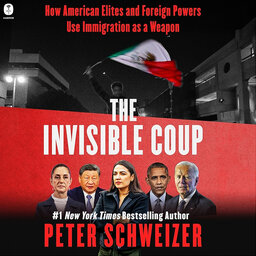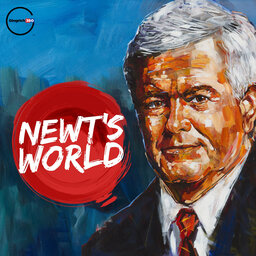Episode 695: Nuclear War: A Scenario
Newt talks with Pulitzer Prize finalist Annie Jacobsen, about her new book "Nuclear War: A Scenario". The book explores the potential aftermath of a nuclear missile launch, based on interviews with military and civilian experts. Jacobsen discusses the concept of "Mad King Logic", where one irrational leader with a nuclear arsenal could trigger a global catastrophe. She also explains the devastating environmental and human impacts of a nuclear war, including nuclear winter and the death of billions. Jacobsen suggests that the way forward is to reduce the number of nuclear weapons and make their use taboo, following the example set by President Reagan. They also discuss how this could be implemented in a world with unpredictable leaders like Kim Jong Un and Ayatollah Khomeini.
In 1 playlist(s)
Newt's World
Join former House Speaker, professor, historian, and futurist Newt Gingrich as he shares his lifetim…Social links
Follow podcast
Recent clips

Episode 948: ‘Moneyball’ for Politics
30:34

Episode 947: Will AI Take My Job
28:22

Episode 946: Peter Schweizer on “The Invisible Coup”
34:50
 Newt's World
Newt's World